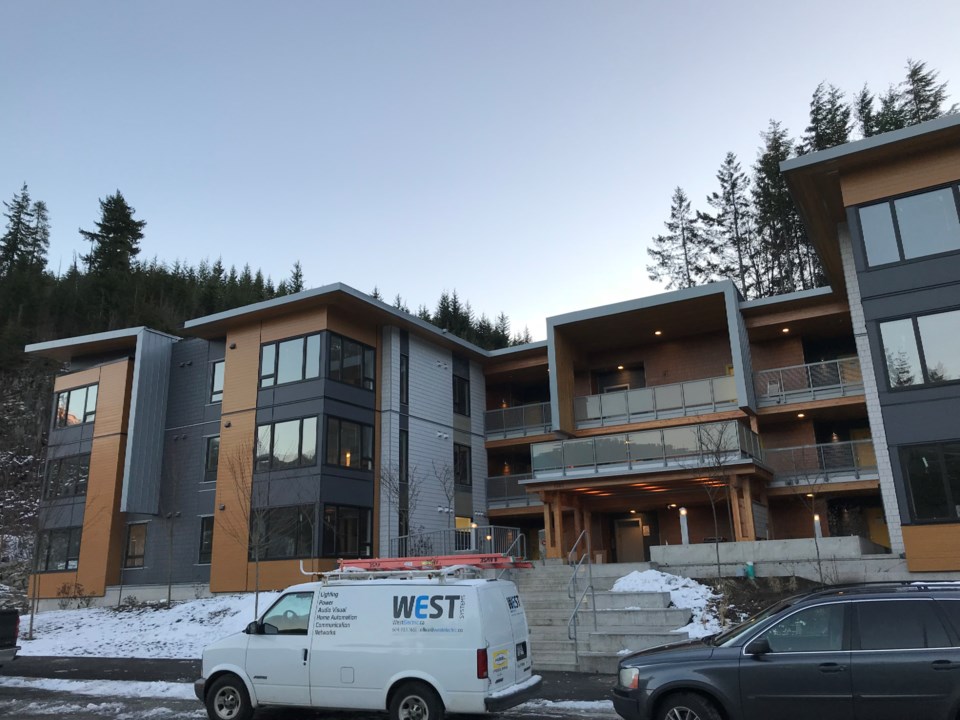Housing—or lack thereof—isn’t just a Whistler problem.
In fact, mountain resorts throughout North America have been struggling in recent years to adequately house residents who live, work, and play there.
To help foster ideas between those communities, the Whistler Institute is partnering with the Canada West Ski Areas Association (CWSAA) Spring Conference—set to take place in Whistler from April 25 to 27—to host a multi-panel discussion on the topic, called A Roof Over Our Heads: Exploring Mountain Resort Housing Possibilities.
“We’re not necessarily going to focus on the challenges,” said Suki Cheyne, executive director of the Whistler Institute. “We’re aware of what the challenges are, but we will explore what different communities have done, what’s worked for them, and spark ideas for people to try in their communities as well. We’re not solving housing in an afternoon, but we can have an interesting and informed discussion about what works in different communities.”
The discussion is aimed both at those from other communities attending the CWSAA conference, but also Whistler locals.
The first half of the two-part discussion will focus on Whistler’s housing history, with panelists Steve Bayly with the Whistler Valley Housing Society (also a founding director and the original general manager of the Whistler Housing Authority); Kate Roddick, senior project leader at Whistler Blackcomb; and Duane Jackson, former Resort Municipality of Whistler (RMOW) councillor, and chair of the Whistler 2020 Development Corp.
“Because we have two distinct audiences at this event—the CWSAA delegates and the local community—there will be many people from outside Whistler, and being in Whistler, it’s interesting for them to learn what Whistler has done as a community,” Cheyne said.
And, despite housing hardships, Whistler, statistically speaking, has actually “successfully housed a large percentage of its workforce,” she added.
The second half of the talk will “move further afield, looking at other jurisdictions and areas—what’s worked well,” Cheyne said.
That panel will feature Al Raine, mayor of Sun Peaks (who has a long, storied history in Whistler, including helping to develop it); George Ruther, director of housing in Vail, Colo.; and Dale Mikkelsen, who was recently hired as head of the RMOW’s climate action, planning and development services division, and previously worked as the director of development and chief operating officer for Simon Fraser University’s UniverCity.
“Every community is unique. Whistler has had its own opportunity, in respect to the 2010 Olympics; we received land, and the housing is part of that. Not every community will have had that, but other communities will have had other things happen. We’re really hoping for an interesting panel onstage,” Cheyne said.
There will also be time for audience Q&A after the discussion, which will be moderated by Pique columnist G.D. Maxwell.
“He’s not going to shy away from the questions that need to be asked,” Cheyne added. “He’ll make sure it’s an interesting conversation.”
Interest in the event, meanwhile, is strong, with tickets already selling well.
“I think (the goal is to) share ideas and spark ideas,” she said. “I would hope it would be of interest to anyone who wants to learn more about how housing in Whistler has evolved and where it’s moving.”
The event takes place on April 27 from 2 to 4:30 p.m. at the Whistler Conference Centre. Tickets are $25, available here.




